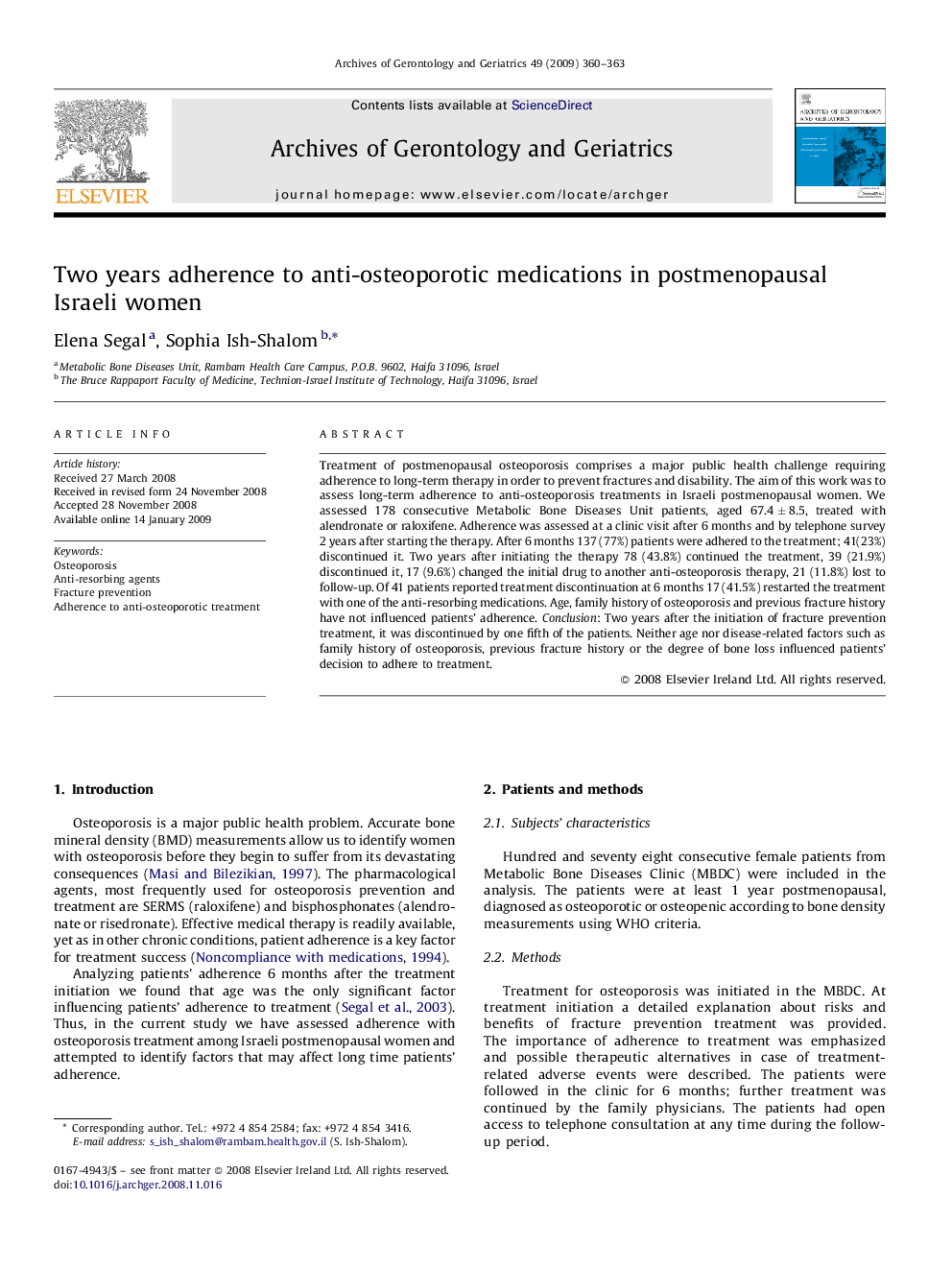| Article ID | Journal | Published Year | Pages | File Type |
|---|---|---|---|---|
| 1904089 | Archives of Gerontology and Geriatrics | 2009 | 4 Pages |
Treatment of postmenopausal osteoporosis comprises a major public health challenge requiring adherence to long-term therapy in order to prevent fractures and disability. The aim of this work was to assess long-term adherence to anti-osteoporosis treatments in Israeli postmenopausal women. We assessed 178 consecutive Metabolic Bone Diseases Unit patients, aged 67.4 ± 8.5, treated with alendronate or raloxifene. Adherence was assessed at a clinic visit after 6 months and by telephone survey 2 years after starting the therapy. After 6 months 137 (77%) patients were adhered to the treatment; 41(23%) discontinued it. Two years after initiating the therapy 78 (43.8%) continued the treatment, 39 (21.9%) discontinued it, 17 (9.6%) changed the initial drug to another anti-osteoporosis therapy, 21 (11.8%) lost to follow-up. Of 41 patients reported treatment discontinuation at 6 months 17 (41.5%) restarted the treatment with one of the anti-resorbing medications. Age, family history of osteoporosis and previous fracture history have not influenced patients’ adherence. Conclusion: Two years after the initiation of fracture prevention treatment, it was discontinued by one fifth of the patients. Neither age nor disease-related factors such as family history of osteoporosis, previous fracture history or the degree of bone loss influenced patients’ decision to adhere to treatment.
